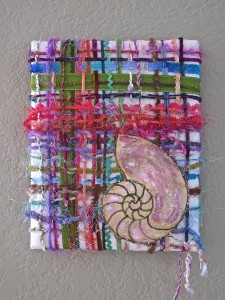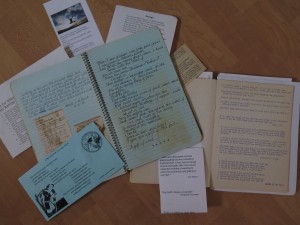 I know I have been speaking about this for a week or so, but I am intensely curious about what I hear and see around me. We seem to be on or near a fulcrum of resolution (or panic – I think it can go either way). For some reason, the attacks on Paris have resulted in a media frenzy that was entirely lacking when Flight 9268 went down in the Sinai on October 31, killing all 224 people on board. Authorities are now almost certain that a bomb was the cause of the crash and a terrorist group has claimed responsibility. (I feel odd using that word because such an act is totally irresponsible…)
I know I have been speaking about this for a week or so, but I am intensely curious about what I hear and see around me. We seem to be on or near a fulcrum of resolution (or panic – I think it can go either way). For some reason, the attacks on Paris have resulted in a media frenzy that was entirely lacking when Flight 9268 went down in the Sinai on October 31, killing all 224 people on board. Authorities are now almost certain that a bomb was the cause of the crash and a terrorist group has claimed responsibility. (I feel odd using that word because such an act is totally irresponsible…)
Why the deaths in 130 deaths in Paris seem worse is a puzzlement to me. Each death is always a singular ending to a unique life, connected to many other unique lives through blood lines and friendships and working relationships. The ripples from even a single natural (in the sense of unhurried) death spread widely. The interlocking ripples of the deaths of many people at once can become a tsunami.
The instinct (used loosely and not technically) of many folks is to withdraw, to sever connections, to mistrust, to become a lone ranger (or a lone couple or lone nuclear family). Who can we trust? We look around us with suspicion at neighbors with whom we were exchanging greetings only a month ago at the mailbox or grocery store. Now, anything unusual about them (a turban, a skin color, a veil, an accent) becomes reason to talk about legally rejecting the stranger and refugee, the Other.
Artists are, by nature and purpose, fairly solitary individuals. As writers frequently are. The creative endeavor is rarely a corporate activity. One does not paint a masterpiece in a group with everyone taking turns. And the through line to most books needs a single vision. Some of us become isolated recluses, virtual hermits, content to live and think and eat and paint/sculpt/sew/write alone. However, most of us have learned to be intentional about establishing relations with others that force us to lift our attention past the keyboard/pain brush/needles and thread/pen and paper. (Practically speaking, there isn’t much to say or present if there are no human interactions to ponder and respond to.)
 My daughter (who is a writer) recently published an observation that, with a tiny bit of translation, can wisely apply to all of us. It applies whenever we think our life is so special that other people cannot possibly understand its importance or brilliance or depth. It applies whenever we think that others don’t hurt as much, don’t believe the right things, don’t have visions or dreams or plans that are as legitimate. She describes two different communities in which she creates and what she has learned from those vastly different experiences and mindsets.
My daughter (who is a writer) recently published an observation that, with a tiny bit of translation, can wisely apply to all of us. It applies whenever we think our life is so special that other people cannot possibly understand its importance or brilliance or depth. It applies whenever we think that others don’t hurt as much, don’t believe the right things, don’t have visions or dreams or plans that are as legitimate. She describes two different communities in which she creates and what she has learned from those vastly different experiences and mindsets.
I asked her if she would be my very first guest op-ed presenter. Here are her words for your consideration:
Every once in a while, one author will remind another that no matter how many drafts, edits, beta reading cycles, cover alterations, and formatting runs, a book is not finished until someone has picked it up and read it. That’s the nature of the medium. The book, in many senses, does not even exist until it’s gone out into the world to be interpreted and commented on, and no matter how infuriating an author might find it to have their work (by their standards) misinterpreted, the finishing of the book is something that can only be done by readers.
Video game writers might well say the same things to one another, but I also wonder whether or not they need to. One of the most astonishing things to me about the industry is how open it is to user feedback. While a writer might have 1-2 rounds of beta reading, and perhaps 3 in editing, it is not out of the question for a game to have significantly more rounds of testing.
And then the creators make changes. It’s incredible. It’s miles away from the assertions that the author is alone in their creation. It’s refreshing. And it has made a huge difference in how I approach my writing.
Before we go any farther, let me state that there is a huge variation in how authors take or do not take feedback, and in how much feedback they seek. Authors are not a monolithic group any more than video game companies are, and I have no doubt that there are outliers in both cases: authors who do 10-12 rounds of beta reading, video game companies that refuse to change the smallest thing, etc. The general ethos, however, seems different across industries: for authors, the sense of the inviolability of vision; for video game companies, the belief that games can and should be adapted to user feedback.
So where does this difference come from? One of the first major drivers, I think, lies not in the consumers, but in the teams themselves. If there’s a video game with a story component that hasn’t been made with a team, I have yet to find it. There is, necessarily, more than one voice. There are other writers. There are other people collaborating in your vision. It is inevitable that they will give feedback, and that the writers will be faced with an almost-daily choice of whether or not to incorporate it. Authors, on the other hand, largely work alone. The vision is theirs alone up until the first readers get their hands on the manuscript. The authors, for better or worse, have not been subjected to the consistent, somewhat unsettling experience of having their work critiqued, and they aren’t used to it.
A second difference: the player’s interaction with a game can in many ways be more visceral than a book. Books elicit emotion, that is undeniable, but any psychologist will tell you that there is a difference between watching a movie or reading a book, and taking an action yourself. Video games force you into ownership of media in a way that books do not—and the creators, almost all of them avid players, seem to understand this on a very basic level, therefore giving players more ownership of the story from the early stages of development.
Another difference, however, goes all the way back to before the great depression, when a rather astonishing concept began to rear its head in American media: that good books, great books, the quintessential Great American Novel, should be difficult to read. That good books…should not be enjoyed. The concept burrowed deep, and spread. You may think I’m insane as you read this, but consider the derision faced by blockbuster movies, romance novels, even books like the Hunger Games. Of course it’s popular. Of course everyone’s reading it. Most people don’t like the really good books.
In some senses, this drive to elitism can be remarkably viable. Art, quite often, is about confronting the broken, the ugly, the dishonorable. Many fantastic books drag us to places of despair, and humans are hard-wired to try to avoid pain. Transcendently amazing art can be difficult to consume.
But, and I say this as not only an author, but an avid reader of both literature and genre fiction, in writing above all, this concept of difficult art has been turned on its head. The perceived causality has begun to run backwards, stating not that good art can be difficult and even unpleasant, but instead giving authors a sort of pleasure when their book is disliked or misunderstood: Of course. Of course you don’t get it. It’s high concept. It’s beyond most readers. I’ll never be appreciated in my own time. The idea of changing the plot, the characters, the wording so that readers can understand or enjoy is considered no less than a compromise of the author’s core self, a betrayal of Art.
It is for this reason that I find the video game industry refreshing. Here, more than in any other branch of media, I find the question: but if the consumers don’t enjoy it and don’t understand it, why are we making it? Video games do not shy from asking big questions on the nature of humanity, love, honor, and sacrifice, but neither does the industry as a whole revile games that make jokes, that tailor their story to extensive player feedback, that allow themselves to be fun.
It’s a valuable lesson.
Text © 2015, Philippa Anastos Werner
 What would happen if we took the approach that our lives might benefit from being accessible and connected, interactive? That a beta-reader or two might help us grow by asking interesting questions? What if we welcomed — even actively sought — cooperative input? What if we were willing to reflect on what we hold most dear and help others understand why that is important to us? (Rather than demeaning or imprisoning or blowing up those who hold different values?) What if we took ourselves just a little less seriously? Would it give others permission (and trust) to engage more rather than less? Would that be good?
What would happen if we took the approach that our lives might benefit from being accessible and connected, interactive? That a beta-reader or two might help us grow by asking interesting questions? What if we welcomed — even actively sought — cooperative input? What if we were willing to reflect on what we hold most dear and help others understand why that is important to us? (Rather than demeaning or imprisoning or blowing up those who hold different values?) What if we took ourselves just a little less seriously? Would it give others permission (and trust) to engage more rather than less? Would that be good?
–Andrea
Text © 2015, Andrea La Sonde Anastos
Photos © 2015, 2012, Immram Chara, LLC
NOTE: I would love it (love it!) if you would go to my Facebook Page and like the whole page. It isn’t difficult to find (Immram Chara) and I would love to move past 100 page likes before Christmas.